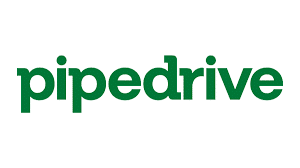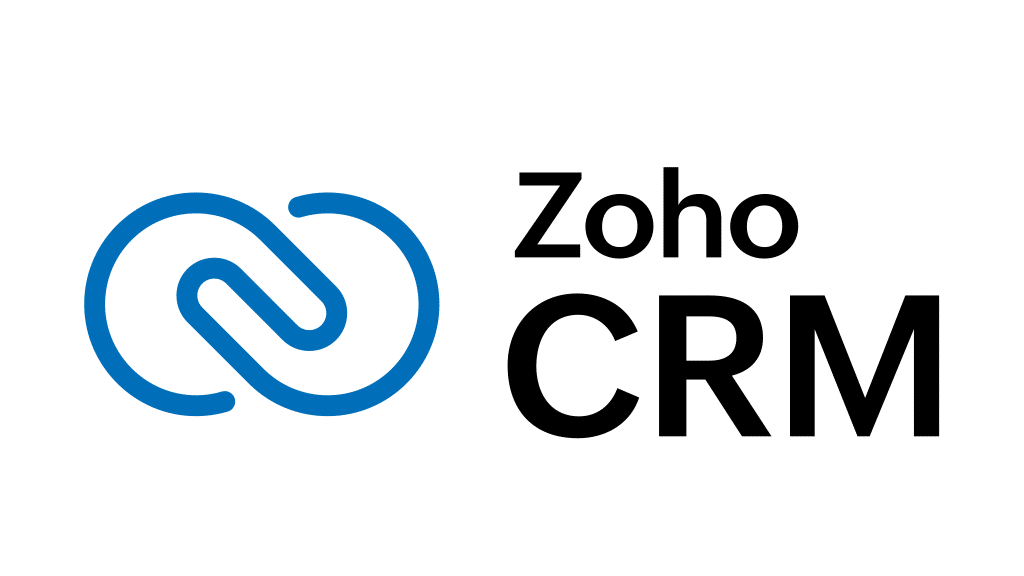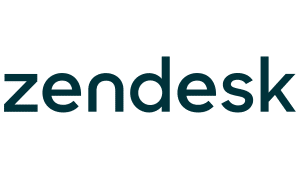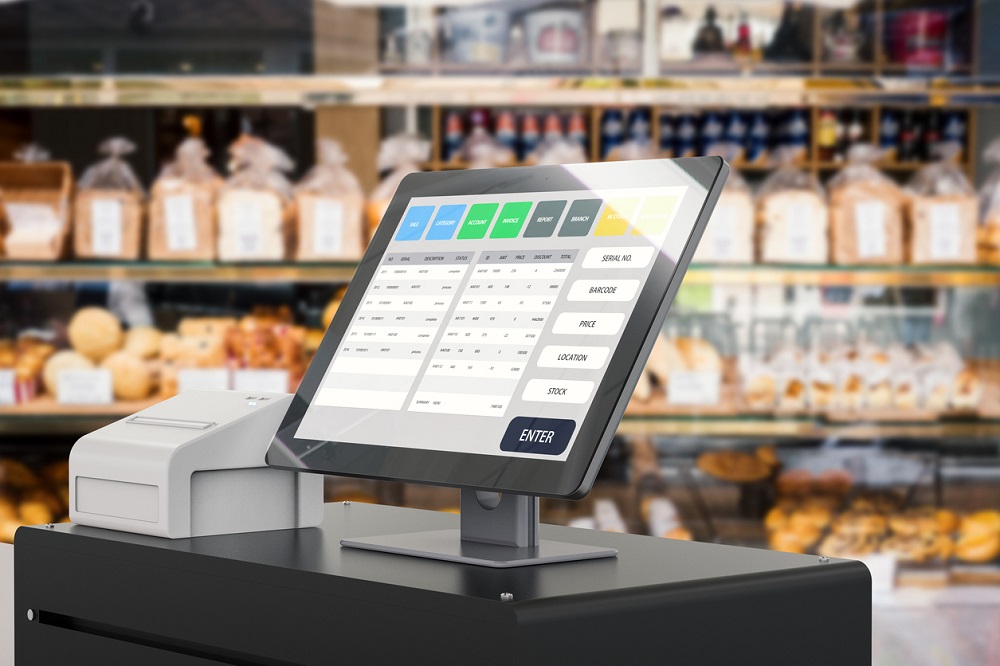The best CRM software can help you better manage customer relationships, track customer communications for improved customer service, and generate actionable insights to inform your sales and marketing efforts. Statistics show that using a CRM app or software to inform your sales strategy can lead to a 300% increase in conversion rates.
Drawing on my extensive experience with CRM systems, I have tested and evaluated the best the market has to offer. I’ve compiled a list of the top 10 best CRM software for 2024 based on integrations, automations, and pricing.
The Best CRM Tools Tested by Our Experts
The 10 Top CRM Tools Ranked
- Salesforce — Best CRM for large sales teams
- HubSpot — Best CRM tool for AI features
- Thryv — Best CRM for local businesses
- monday CRM — Best mobile CRM software for ease of use
- Pipedrive — Best CRM for pipeline management
- Zoho — Best CRM app for marketing and sales forecasting
- Capsule — Best CRM for simplicity
- Freshsales — Best CRM for small and independent sales teams
- Zendesk Sell — Best CRM for external communications
- Insightly — Best CRM with built-in project management
- Show Full Guide
The Top 10 CRM Apps and Software Reviewed
Below, I’ve explored each of the market’s best CRM software providers in more depth to help you choose one that best suits your needs and budget. I’ve outlined the key features on offer, pricing plans, and who each provider is best for.
1. Salesforce — Best CRM for Large Sales Teams
| Starting Price | $25/user/month |
|---|---|
| Free Version | ❌ |
| Key Features | Sales performance management, Workflow automation, Einstein AI |
| Document Library | ✅ |
| Mobile App Support | ✅ |
Pros
- Fully customizable
- Easy cross-department collaboration
- Ideal sales and email marketing CRM
- Advanced activity tracking with real-time notifications
- Powerful AI capabilities
Cons
- Pricier plans than competitors
- Not a quick set-up due to steeper learning curve
2. HubSpot CRM — Best CRM App for AI Features
| Starting Price | $15/user/month |
|---|---|
| Free Version | ✅ |
| Key Features | Breeze Copilot, Breeze Agents, Breeze Intelligence |
| Document Library | ✅ |
| Mobile App Support | ✅ |
Pros
- Industry-leading AI features
- Works across sales, marketing, customer service, and operations
- Ample potential for scaling; no need to switch providers
- Excellent for email marketing and tracking
- Free plan offers an excellent trial opportunity
Cons
- No built-in plagiarism checker for AI-written content
- Rather complicated pricing structure
3. Thryv — Best for Local Businesses
| Starting Price | $228/location/month |
|---|---|
| Free Version | Demo available |
| Key Features | Appointment scheduling, Social media management, Email and SMS marketing |
| Document Library | ✅ |
| Mobile App Support | ✅ |
Pros
- All-in-one tool, more than just CRM
- HIPAA-secure, ideal for data security
- Best for businesses fostering a local presence
- Automated campaign features
- Provides tools for website creation and social media management
Cons
- Priced per location may not work out cheaper for small teams
- Lacking advanced CRM features
4. monday CRM — Best Mobile CRM Software for Ease of Use
| Starting Price | $12/user/month |
|---|---|
| Free Version | 14-day free trial |
| Key Features | Email sync, Performance tracking, No-code automations |
| Document Library | ✅ |
| Mobile App Support | ✅ |
Pros
- Intuitive and easy to use
- Syncs with your Gmail/Outlook inbox
- Offers advanced automations without any coding
- Provides real-time notifications
- Great mobile app
Cons
- Few social media integrations
- Lead scoring is only available on Enterprise plan
5. Pipedrive — Best CRM for Pipeline Management
| Starting Price | $14/user/month |
|---|---|
| Free Version | 14-day free trial |
| Key Features | Pipeline management, Email marketing, Sales automations |
| Document Library | ✅ |
| Mobile App Support | ✅ |
Pros
- Easy to use
- Free 14-day trial with no credit card required
- Drag-and-drop automations
- Automatic progress tracking
- Best mobile CRM app experience
Cons
- Security alerts are reserved for the Enterprise plan
- Lead generation is not included as a standard

6. Zoho CRM — Best CRM App for Marketing and Sales Forecasting
| Starting Price | $14/user/month |
|---|---|
| Free Version | 15-day free trial |
| Key Features | AI sales forecasting, Marketing automation, Powerful analytics |
| Document Library | ✅ |
| Mobile App Support | ✅ |
Pros
- Part of a larger software range for native integrations
- AI-powered sales forecasting and lead scoring
- Advanced security and compliance, ideal for handling sensitive data
- Canvas Design Studio lets you fully redesign your CRM
- Exceptional email marketing and automation
Cons
- The platform is slow to be updated, leading to bugs
- Lacks flexible third-party integrations

7. Capsule — Best CRM for Simplicity
| Starting Price | $18/user/month |
|---|---|
| Free Version | 15-day free trial |
| Key Features | AI content assistant, Workflow automation, Email marketing |
| Document Library | ❌ |
| Mobile App Support | ✅ |
Pros
- Offers a dedicated built-in marketing platform
- Simple design
- High customer satisfaction
- Mobile app available
- Multi-currency support
Cons
- Difficulty integrating with MailChimp
- Lacking social media management and multiple sales pipelines
8. Freshsales — Best CRM for Small and Independent Sales Teams
| Starting Price | $12/user/month |
|---|---|
| Free Version | ✅ |
| Key Features | Lead generation, Auto-enrichment, Predictive scoring |
| Document Library | ✅ |
| Mobile App Support | ✅ |
Pros
- Simple and easy to use
- Task reminders for your sales team
- Advanced forecasting with Freddy AI
- Highly customizable
- Free forever plan
Cons
- Mixed customer support reviews
- Only 10 sales pipelines
9. Zendesk — Best CRM for External Communications
| Starting Price | $19/user/month |
|---|---|
| Free Version | 14-day free trial |
| Key Features | Email sync and tracking, Call recording and scripts, Smart lists |
| Document Library | ✅ |
| Mobile App Support | ✅ |
Pros
- Pipeline management and pipeline visibility
- Built-in telephone system with a power dialer
- Email templates and phone sales scripts
- Real-time push notifications
- Simple onboarding process
Cons
- No built-in marketing automation
- Forecasting and automation only included on higher plans
10. Insightly — Best CRM with Built-in Project Management
| Starting Price | $29/user/month |
|---|---|
| Free Version | 14-day free trial |
| Key Features | Projects, Workflow automation, Validation rules |
| Document Library | ✅ |
| Mobile App Support | ✅ |
Pros
- Combines project management with CRM
- Very customizable to individual business processes
- Attention toward data compliance and user permissions
- Simple to understand and navigate
- Strong data access permission settings
Cons
- High starting price
- Separate marketing product
The Top 10 CRM App Comparison Guide
In this table, I’ve compared the top 10 CRMs based on pricing, free plans, and included features so that you can understand which one suits your needs best.
| Providers | Salesforce | HubSpot | Thryv | monday CRM | Pipedrive | Zoho CRM | Capsule | Freshsales | Zendesk Sell | Insightly |
|---|---|---|---|---|---|---|---|---|---|---|
| Best for | Sales teams | AI Features | Local businesses | Ease of use | Pipeline management | Larger businesses | Simplicity | Smaller businesses | External communications | CRM with project management |
| Free Version | ❌ | ✅ | ❌ | ❌ | ❌ | ❌ | ❌ | ✅ | ❌ | ❌ |
| Starting Price | $25/user/month | $15/user/month | $228/location/month | $12/user/month | $14/user/month | $14/user/month | $18/user/month | $12/user/month | $19/user/month | $29/user/month |
| Document Library | ✅ | ✅ | ✅ | ✅ | ✅ | ✅ | ❌ | ✅ | ✅ | ✅ |
| Pipeline Management | ✅ | ✅ | ❌ | ✅ | ✅ | ✅ | ✅ | ✅ | ✅ | ✅ |
| Analytics | ✅ | ✅ | ❌ | ✅ | ✅ | ✅ | ✅ | ✅ | ✅ | ✅ |
| Mobile Support | ✅ | ✅ | ✅ | ✅ | ✅ | ✅ | ✅ | ✅ | ✅ | ✅ |
We base our recommendations on first-hand testing. All the CRM Software products we feature, have been tested based on the following criteria:How We Review And Test CRM Software
What Is CRM Software?
CRM is a vast umbrella term for many types of software, and here, I will explain the different types of CRM available: Analytical, Operational, and Collaborative.
Analytical
Analytical CRMs extract actionable insights from your data to help you make informed business decisions. This type of CRM doesn’t directly interact with your customers. Instead, it works behind the scenes to help your business perform better.
For example, it helps identify customer trends and the most probable leads, saving you valuable time. It can also generate sales reports, profit and loss analyses, and other data-backed reports to forecast future sales.
An analytical CRM, like Salesforce or Zoho, is best for larger organizations that collect vast amounts of data from their customers and want to use a CRM tool for business development rather than simply managing a customer base.
Operational
This is the most common type of CRM and offers the broadest feature set. Its primary goal is to streamline business processes and collect sales data and customer interactions in a singular location.
It helps to enact strategies that could be informed by an analytical CRM, such as automating repetitive tasks, sending emails, following up with customers, and scheduling appointments.
Both sales and marketing teams who have a lot of interaction with customers can benefit from an operational CRM, like Pipedrive, to help generate fresh leads and convert them into loyal customers.
Collaborative
Collaborative CRMs manage various incoming and outgoing communication channels, such as phone and email, as well as third-party communication platforms, such as social media accounts, to ensure maximum customer satisfaction on each channel. They’ll also help identify the best modes of communication with each customer.
File storage and sharing is another component of collaborative CRM tools. They allow teams to coordinate on shared documents even if they are not physically present in the same office. You may also get built-in VoIP, live chat, and real-time AI assistance, too.
Collaborative CRMs like monday CRM and Freshsales are invaluable for customer-facing teams looking to improve communication on all of their customer channels, ensuring customers have a positive first impression and ongoing positive experience with your brand.
How to Choose the Best CRM Software Tool
This guide will help you focus your attention on the best CRM for your specific needs and budget. Here are the key factors to consider when choosing a CRM for your business:
Before you commit to a specific CRM service, it’s important to understand what features your team needs. For example, you might not need integration with accounting tools, but marketing automation is at the top of your list.
Knowing what you need from a CRM from the outset will help you eliminate certain CRM platforms and narrow down your list of options.
As your company grows, your CRM solution should scale with you and support your growth. Look for a CRM platform that’s easy to scale, both in terms of the number of users and functionality.
It’s worth considering these points at an early stage, as once you’ve signed up, switching CRMs can be lengthy and costly. Beyond this, be sure to factor in the cost of scaling with the CRM.
A good CRM should streamline workflows, centralize data, and facilitate team communication and collaboration. To do this effectively, it should integrate with the tools your business uses daily.
This includes your email, calendar, project management software, and other business software. Automatically syncing data across apps allows your team to complete tasks without leaving the platform.
It’s important to note the integration options on offer, but it’s also vital to ensure the integrations are available on the plan you can afford. Often, many CRM solutions reserve certain third-party integrations for higher-end plans.
Most CRM service providers have a monthly subscription plan where you pay for every user. If you have a larger team, the cost can quickly add up, so you should carefully consider how many people need access.
Beyond this, a free or cheap CRM service is also an option, but whether these will suffice really depends on your specific needs. These are usually very limited in their offerings but offer a great opportunity to test the platform before you commit.
Reading reviews and getting a good understanding of a CRM’s reputation is a good idea. This is why I’ve included our full reviews to ensure you get full insight into the platform you’re considering for your business.
I’ve meticulously tested each of these CRM platforms to ensure we offer unbiased, accurate insight into their usability, support, value for money, and functionality.
CRM software apps are vital in today’s fast-paced world. Your sales team won’t always be at their desks in the office, and neither will you. As such, whether the platform offers mobile CRM solutions is a key consideration, as is the level of functionality and ease of use of these mobile CRM applications.
The best CRM app for Android and iPhone should let you handle, at a minimum, the basics, including contact management, email marketing, and collaboration.
Key Features To Consider When Choosing a CRM App
This guide will help you focus your attention on the best CRM for your specific needs and budget. Here are the key factors to consider when choosing a CRM for your business:
- Contact Management: CRMs collect all of your customer information on one centralized database that is accessible to your entire team. You should look out for platforms that offer flexibility in the way your contact information is displayed, the level of personalization available, and whether there are helpful AI suggestions to score leads and customers on their likelihood to convert.
- Document Management: Look out for storage limits to see whether your chosen CRM has the capacity to store all relevant documents, and also check for security and compliance standards to ensure that your documents will be secure.
- Sales Pipeline Management: A visual sales pipeline is an absolute must if you’re mainly using CRM to actively pursue sales prospects. A sales pipeline lays out all of your ongoing sales opportunities according to their position in the sales pipeline. Vital information such as the source of the lead, name, and value of the deal should also be included. This allows you to immediately see the status of various leads without having to communicate with various agents.
- Third-Party Integrations: CRM works best as a centralized database that all of your other platforms can connect to. Ideally, your CRM should link with your phone system, marketing platforms, accounting and invoicing systems, and communication channels (like social media). This helps you store any communication in one place and keep track of important documents.
- Customizations: Since CRM platforms can be pretty broad, it helps to be able to create custom fields and other customizations to fine-tune the system to your own business processes. This will improve the ease of use and make the system easy for your staff to understand.
- Security: Ensure the platform you are using to store your customer’s valuable data has measures in place to keep it safe. If you are working with extremely sensitive data, you may feel more secure working with an on-premises solution vs. a cloud-based platform. This will allow you to take full control of security instead of leaving it to your software provider.
- Reporting and Analytics: One of the benefits of tracking customer data is that you can benefit from smart insights to inform future sales and marketing strategies. This can include tracking seasonal trends in sales to decide the best time to launch a new product, or use customer data to understand the best time to contact them.
Prioritize Mobile CRM Support (CRM Apps)
Since many currently work in hybrid, remote, or field environments, staff need flexible access to their customer database, appointment schedule, and ongoing sales pipelines. This is why CRM mobile apps are key.
Not all CRM apps offer full functionality, with some only supporting basic features. The best CRM app for iPhone or Android should let your customer service and sales teams perform a variety of tasks, like managing leads to scheduling follow-ups, without needing to be at their desktop.
If you’re planning on giving your employees a work phone, be sure to check that your chosen CRM platform is compatible with the type of phone you choose. Realistically, as long as it’s an iOS or Android phone, you should be fine.
The Benefits of CRM
In this section, I’ll run through the top ways a CRM can add value to your business operations:
- Centralized Data Point: The main purpose of a CRM is to act as a centralized database. This means it will store your customer data, documents, and ongoing sales activities so that your whole team can access it. The best CRMs also work in real-time to track changes or developments in leads to reduce duplicated efforts.
- Improved Customer Relationships: Customers are at the core of your business and they should be treated as such. Implementing a CRM system can help you forge stronger relationships by providing a personalized service and by keeping a track record of previous communication. This ensures that any agent can follow up with a customer as they’ll have up-to-date information logged on the system.
- Manage Marketing Campaigns: Managing your marketing campaigns with a CRM can help you inform efforts with customer data, personalize your campaigns, and track the success with metrics such as open, click-through, and conversion rates. With this information you’ll know what works and what doesn’t.
- Generate Qualified Leads: In addition to maintaining your existing customer base, CRMs can help generate fresh, qualified leads. It does this by capturing new leads from sources such as email campaigns, landing pages, or web forms. It’ll then qualify them via lead scoring and behavior tracking to gauge the likelihood of conversion. This allows you to focus your efforts on the most likely customers.
Trends in CRM Software
With 30% of CRM users finding their software inefficient and a further 20% switching to a new system entirely, what are the newest CRMs bringing to the table to keep up with the latest industry trends?
- AI and CRM — CRM is another software that is being swept up in the AI revolution. HubSpot, Freshsales, and Zoho are prime examples of CRMs that have implemented AI features to offer helpful suggestions for improvement, score leads, and generate engaging marketing email copy.
- Self-service — Today’s customers can say goodbye to waiting on hold for hours for live customer service agents. The new standard involves live chatbots and instant access to updated knowledge bases. This quickly solves customer queries while also drastically cutting down the number of calls agents have to answer.
- Personalization — To help improve the open rate of your marketing emails and campaigns, personalization becomes important. By using a CRM, you can gather relevant information about your customers to refine and personalize your marketing strategies, ensuring that they have a meaningful impact to improve click-through and conversion rates.













